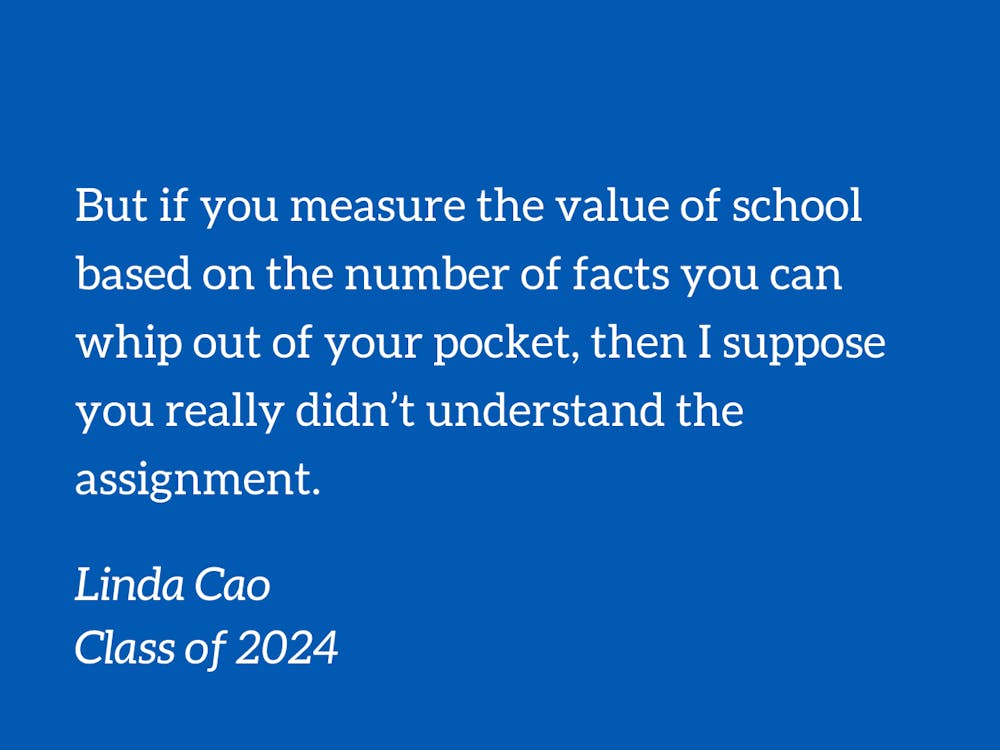A couple weeks ago, The New York Times Opinion column published a series of 12 articles, each answering the specific question, “What is school for?” Together, the 12 articles expanded on 12 different answers, coming from a variety of sources ranging from economics professors from Brown University to parents of public high school students.
When answering the question “What is school for?”, Dr. Bryan Caplan, an economics professor from George Mason University, responds with “wasting time.” Of the 12 articles, as someone who cherishes the value of education, I was curiously intrigued by the title.
Rather than dissect his article, I would like to summarize his argument, which he does himself quite nicely:
“My argument in a nutshell: First, everyone leaves school eventually. Second, most of what you learn in school doesn’t matter after graduation. Third, human beings soon forget knowledge they rarely use” (Caplan).
When I emphasize the importance of school, like Dr. Caplan, many people echo similar claims that most of what you learn in school will not be applicable in the real world or that they will forget nearly everything they once learned. I guess the answer depends on what type of learning we’re referring to: the type on the whiteboard or the type beyond the whiteboard.
Sure, you might not remember that Columbus sailed the ocean blue in 1492 in twenty years when you’re hiring new staff for a hotel or any company. But you’ll remember your friend saying, “you should draw the boats because you’re good at drawing, and I’ll color the ocean in the meantime.” You learned that designating tasks to an appropriate individual with the proper abilities will finish the project faster so you can be released for recess earlier.
You may forget the curriculum, but you won’t forget the experience. Learning to judge one’s ability to fulfill certain responsibilities and justifying your selection are examples of knowledge that do matter. Perhaps, these are skills you might need for a hiring (maybe at a hotel).
Thus, school teaches you how to think. Not what to think, but how to think. Do I wish that more people were aware that the capital of Canada is Ottawa, not Vancouver, or that Charlotte Brontë, not Emily Brontë, wrote Jane Eyre? Of course, I’d love if America’s level of general knowledge of literature, history, or just about the world was more proficient, but I do not think that it is equivalent to trashing the entire education system.
We endure numerous “irrelevant” courses of history, English, physics, and math, not because we intend to become an academic jack-of-all-trades, but to develop our method of thinking. Will I ever need to prove that a three sided figure is actually a triangle using geometry postulates when I’m in my late-30’s? Probably not. But will I ever need to make a claim, learn how to support it with empirical facts, and arrive at a logical conclusion? Yes. That’s literally what I’m doing right now.
I’m not saying that school is a promise of success and prosperity, but I think that Dr. Caplan and others are approaching school with misjudged expectations. In the article, Dr. Caplan makes many sound arguments about how there’s “no excuse for ignoring the piles of evidence that education has little effect on what adults know” or how “handing out ever more high school, college and grad school diplomas can’t enrich society as a whole unless students durably learn long-run skills along the way.”
All fair points.
Undeniably, it’s important that students learn the curriculum taught in the classroom, but students shouldn’t walk away with a stack of report cards and scantrons. They should be walking away with a tested-and-approved model of thinking and refreshed approach to the world. Test scores and grades are valuable indicators of the quality of our education system, but they are not the only ones. We care so much about what is written on paper that we begin to neglect the why, losing sight of cognition, reasoning, and logos.
Fifty years ago, Title IX was instituted to guarantee the right to education free of sex discrimination. Seventy years ago, Brown v. Board outlawed racial segregation in school. A hundred seventy years ago, America’s free school system began. We’ve come a long way to achieve the modern school system, and I admit that we still have a long way to go. If I could go back in time and establish a new school system, I would. But we’re stuck with our current system, and the only realistic choice we have is to attempt reforming it.
Reducing our school system to a “waste of time” simply because it’s flawed is similar to sailors abandoning ship at open sea rather than trying to mend the deck planks to survive until shore. There is still value in our school system. But if you measure the value of school based on the number of facts you can whip out of your pocket, then I suppose you really didn’t understand the assignment.
Linda Cao is a Trinity junior. Her column runs on alternate Wednesdays.
Get The Chronicle straight to your inbox
Signup for our weekly newsletter. Cancel at any time.
Linda Cao is a Trinity senior and an opinion managing editor of The Chronicle's 119th volume.

